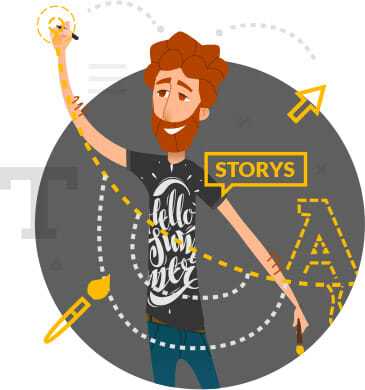
Sustainability communication between credibility and greenwashing
28. June 2017 by Utopia.de B2B dialogue Categories: General
Companies inform about their sustainability activities – that’s almost nothing special anymore. And yet, Utopia Managing Director Meike Gebhard states that this is a paradigm shift whose rules should be known.
Dr. Meike Gebhard (© Utopia / mge)
The digital transformation and the interaction possibilities in social media change the sustainability communication. Companies that want to communicate on the Internet about sustainability and strengthen the confidence of consumers in their brands must observe some basic rules – otherwise the shot goes backwards.
-
Credibility: Who stands on the test between rhetoric and reality and goes on the Internet in a permanent trust check, should build the necessary credibility. Credibility is strengthened when sustainability performance and sustainability communication w >
 Sustainability communication often moves between credibility and greenwashing (photos: © peshkova, wip-studio – Fotolia.com)
Sustainability communication often moves between credibility and greenwashing (photos: © peshkova, wip-studio – Fotolia.com)In addition to the observance of basic communication rules is of course the right one Content strategy a central success factor. Only the combination of relevant content and formats that engage their listeners arouses the interest and the willingness to interact.
But what is actually suitable for communication??
The “iceberg” of sustainability communication
Here comes the ostensibly bad news for sustainability managers in companies: Only a small part of the sustainability activities are suitable for communication towards the end user.
Content needs to be close to the reader. Therefore, all topics with a high relation to the everyday reality of the consumers are interesting for the sustainability communication, for example attractive green product novelties or sustainability actions and campaigns. In a sense, this is the tip of the iceberg of corporate sustainability performance.
However, most of the sustainability activities, especially the social and environmental activities along the value chain, are accounted for by the part of the iceberg that is not visible to the end user. These topics are suitable for expert communication, but not for customer communication. They are nevertheless one conditio sine qua non, to communicate credibly at all.
 The Iceberg Model of Sustainability Communication (Graphic: Utopia)
The Iceberg Model of Sustainability Communication (Graphic: Utopia)
Concrete: Enterprise efforts to progressively enforce minimum social and environmental standards in supply chains tie up significant resources in companies. Achievements achieved are an important contribution to risk prevention. However, they are not suitable for large-scale marketing campaigns because an increasingly sensitive public simply expects these activities to be part of corporate responsibility. In the worst case, active communication can even “awaken sleeping dogs”, because it points out that maladministration was knowingly accepted for decades.
As soon as improvements are manifested in new, more sustainable product alternatives, new communication opportunities open up. The only prerequisite: These are not fig leaf activities.
For example, a company that is credibly committed to ensuring fair working conditions in coffee growing can make the introduction of a Fairtrade certified cocoa the subject of wide-ranging brand and communication measures, thereby strengthening customer confidence in the brand. The systematic involvement in the value chains strengthens the market credit and forms the basis for all communication activities. In particular, the social media offer opportunities for successful and sustainable word-of-mouth marketing.
In addition to product-related topics, projects and actions are suitable for end user communication. Viral effects can be achieved, above all, when success is not communicated ex post, but the customers can make an active contribution – be it through their own actions and participation or through the activation of people in their own social environment.
But again, only if the CSR projects are based on a credible overall program can companies achieve a lasting reputation effect and bind consumers to their brand in the long term. Otherwise, companies in the age of social media are threatening to be quickly exposed as greenwashers.
Do you have questions about sustainability communication? Give us a call!
** Links to sources of supply are partially affiliate links: If you buy here, you actively support Utopia.de, because we then receive a small part of the sales proceeds.
Monika Trax
Head of Business Development
Related Posts
-

Pr – media • cooperations with ania – daniel – go for a ride
cooperation Numbers and information Work with us We are open to cooperation and look forward to sharing your message with our community! Provided we can…
-

Explanatory videos that convince, head – pin explanatory videos
Successful through video. We produce explanatory videos, product videos and viral clips . Our animation agency does not provide standard explanatory…
-

What can you do with a business degree?
What can you do with a Business Degree? Obtaining a business degree equips students with the skills that are always in demand at the workplace . Business…
-

Mba tourism, all study programs – infos
MBA study tourism / tourism management The tourism industry is your preferred career environment? With a tourism MBA you prepare yourself purposefully…
